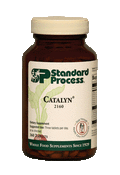
Omega-3 fatty acids are found in fatty layers of cold-water fish and shellfish, plant and nut oils, English walnuts, flaxseed and algae oils. You can also get omega-3s as supplements.
There are the two main types of omega-3 fatty acids: Long-chain omega-3 fatty acids are EPA (eicosapentaenoic acid) and DHA (docosahexaenoic acid). These are plentiful in fish and shellfish. Algae often provides only DHA. Short-chain omega-3 fatty acids are ALA (alpha-linolenic acid). These are found in plants, such as flaxseed. Though beneficial, ALA omega-3 fatty acids have less potent health benefits than EPA and DHA. You'd have to eat a lot to gain the same benefits as you do from fish.
Studies indicate that Omega-3s may provide some benefits to a wide range of diseases such as cancer, depression, asthma, cardiovascular disease, ADAD and autoimmune diseases. It is theorized that these benefits are due to the anti-inflammatory properties of Omega 3s.
The other fatty acids, Omega-6s, are proinflammatory and may contribute to the diseases mentioned previously. Omega-6s are found in crackers, cookies and beef. A good ratio of Omega-3 to Omega-6 is 1:2 but unfortunately most people diets the ratio is about 1:20 which is way too high.
DHA is the most common fatty acid in the brain which might explain why research shows that by increasing consumption of Omega-3 fatty acids improve cognitive function and reduce to risk of strokes.
When choosing a Omega-3 fish oil product look for a cold processed and stabilized product like Standard Process’s Tuna Omega-3 Oil or Calamari Oil. Some cheaper products are produced using heat which can destabilize the oil and cause it to go rancid. All the benefits are lost if the oil has become rancid. Standard Process also thoroughly tests each batch to insure that there are no impurities such as mercury.
There are the two main types of omega-3 fatty acids: Long-chain omega-3 fatty acids are EPA (eicosapentaenoic acid) and DHA (docosahexaenoic acid). These are plentiful in fish and shellfish. Algae often provides only DHA. Short-chain omega-3 fatty acids are ALA (alpha-linolenic acid). These are found in plants, such as flaxseed. Though beneficial, ALA omega-3 fatty acids have less potent health benefits than EPA and DHA. You'd have to eat a lot to gain the same benefits as you do from fish.
Studies indicate that Omega-3s may provide some benefits to a wide range of diseases such as cancer, depression, asthma, cardiovascular disease, ADAD and autoimmune diseases. It is theorized that these benefits are due to the anti-inflammatory properties of Omega 3s.
The other fatty acids, Omega-6s, are proinflammatory and may contribute to the diseases mentioned previously. Omega-6s are found in crackers, cookies and beef. A good ratio of Omega-3 to Omega-6 is 1:2 but unfortunately most people diets the ratio is about 1:20 which is way too high.
DHA is the most common fatty acid in the brain which might explain why research shows that by increasing consumption of Omega-3 fatty acids improve cognitive function and reduce to risk of strokes.
When choosing a Omega-3 fish oil product look for a cold processed and stabilized product like Standard Process’s Tuna Omega-3 Oil or Calamari Oil. Some cheaper products are produced using heat which can destabilize the oil and cause it to go rancid. All the benefits are lost if the oil has become rancid. Standard Process also thoroughly tests each batch to insure that there are no impurities such as mercury.

 RSS Feed
RSS Feed